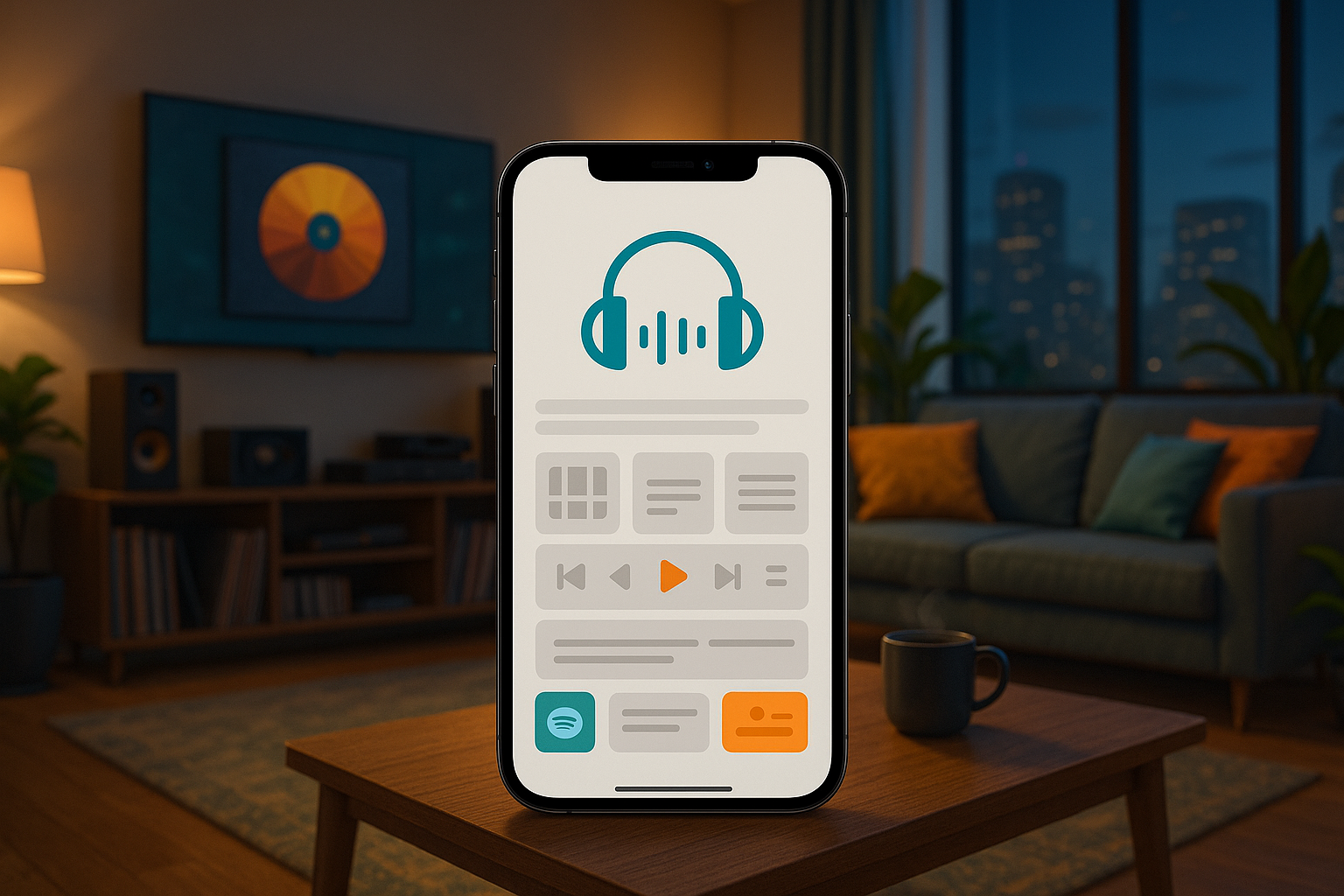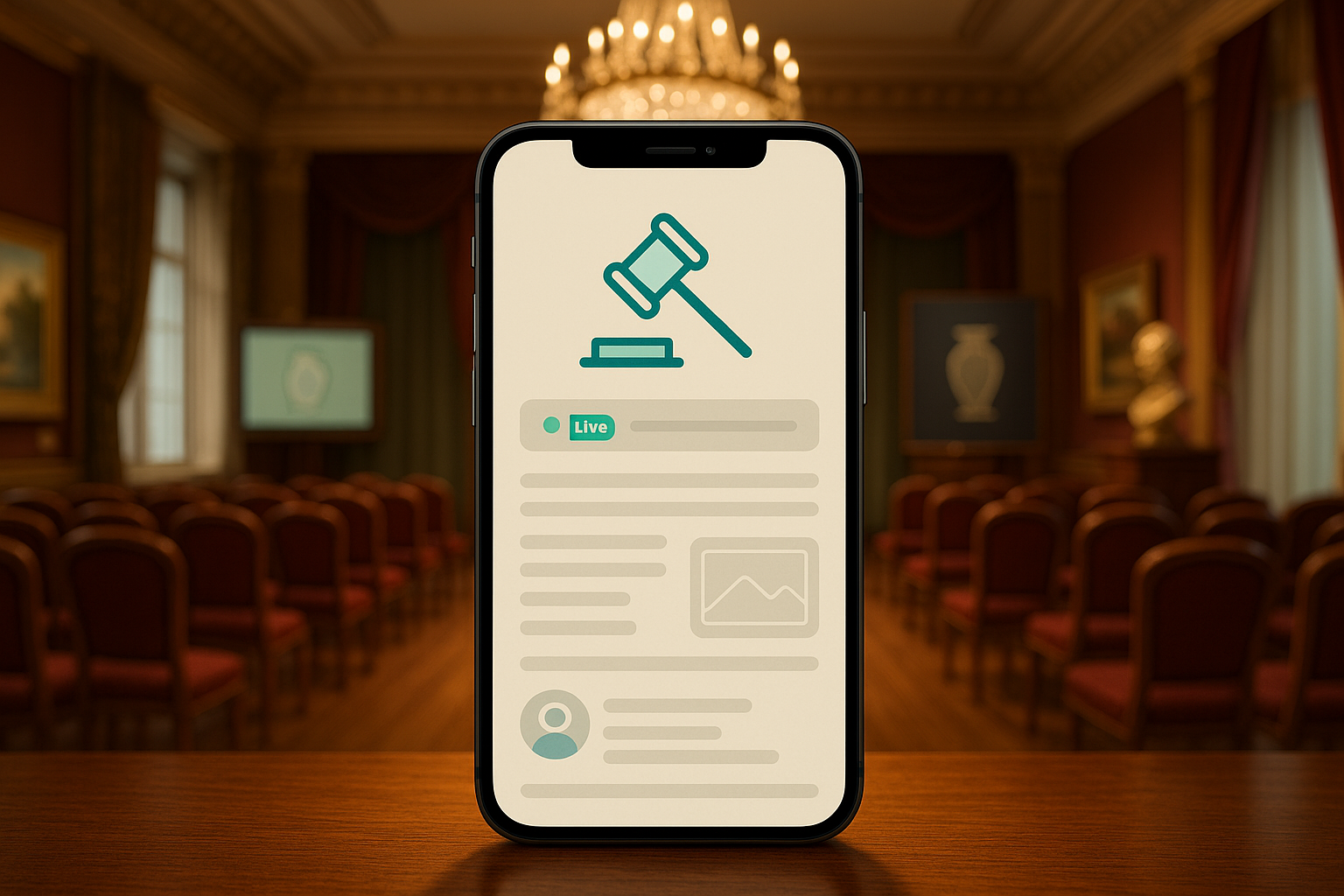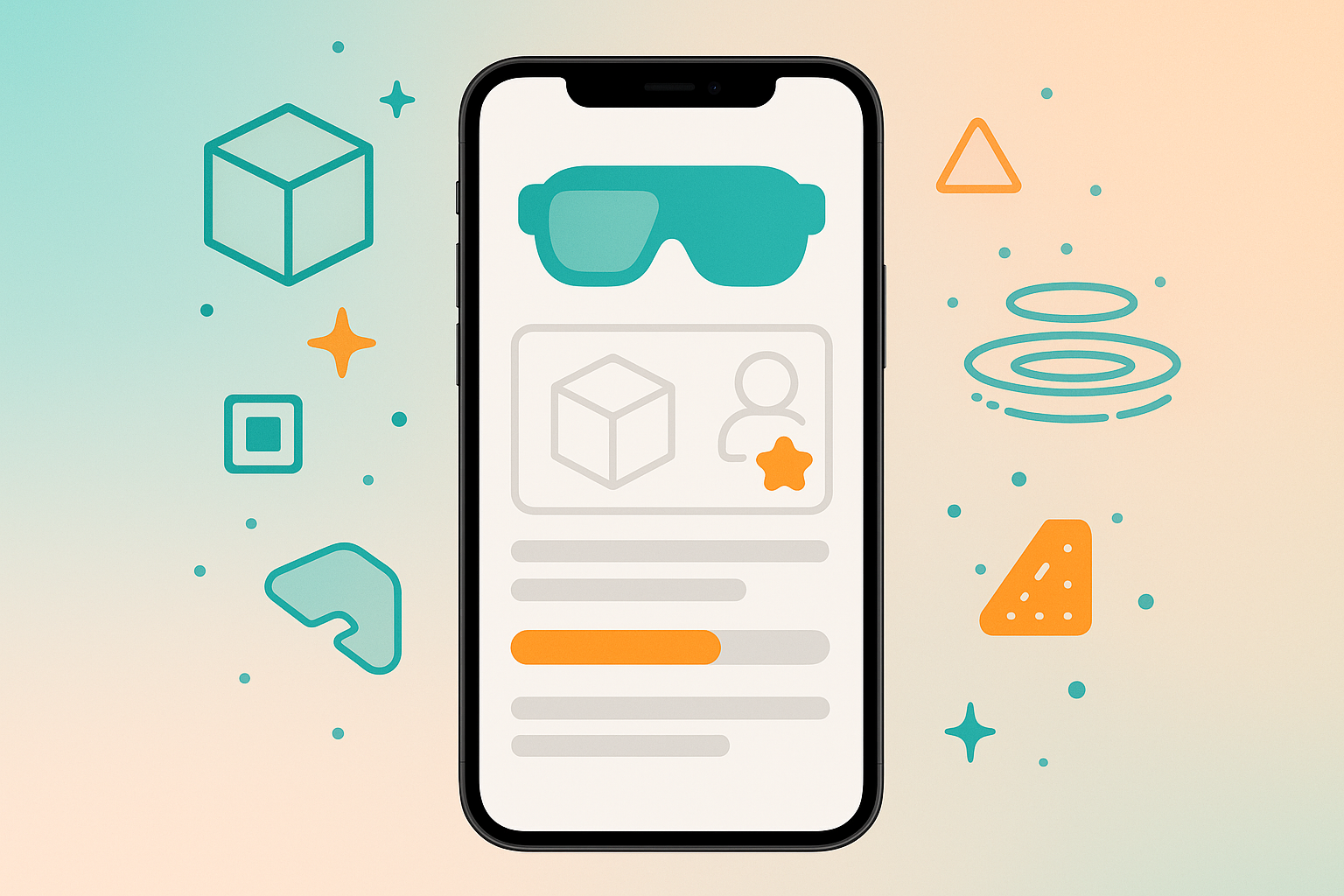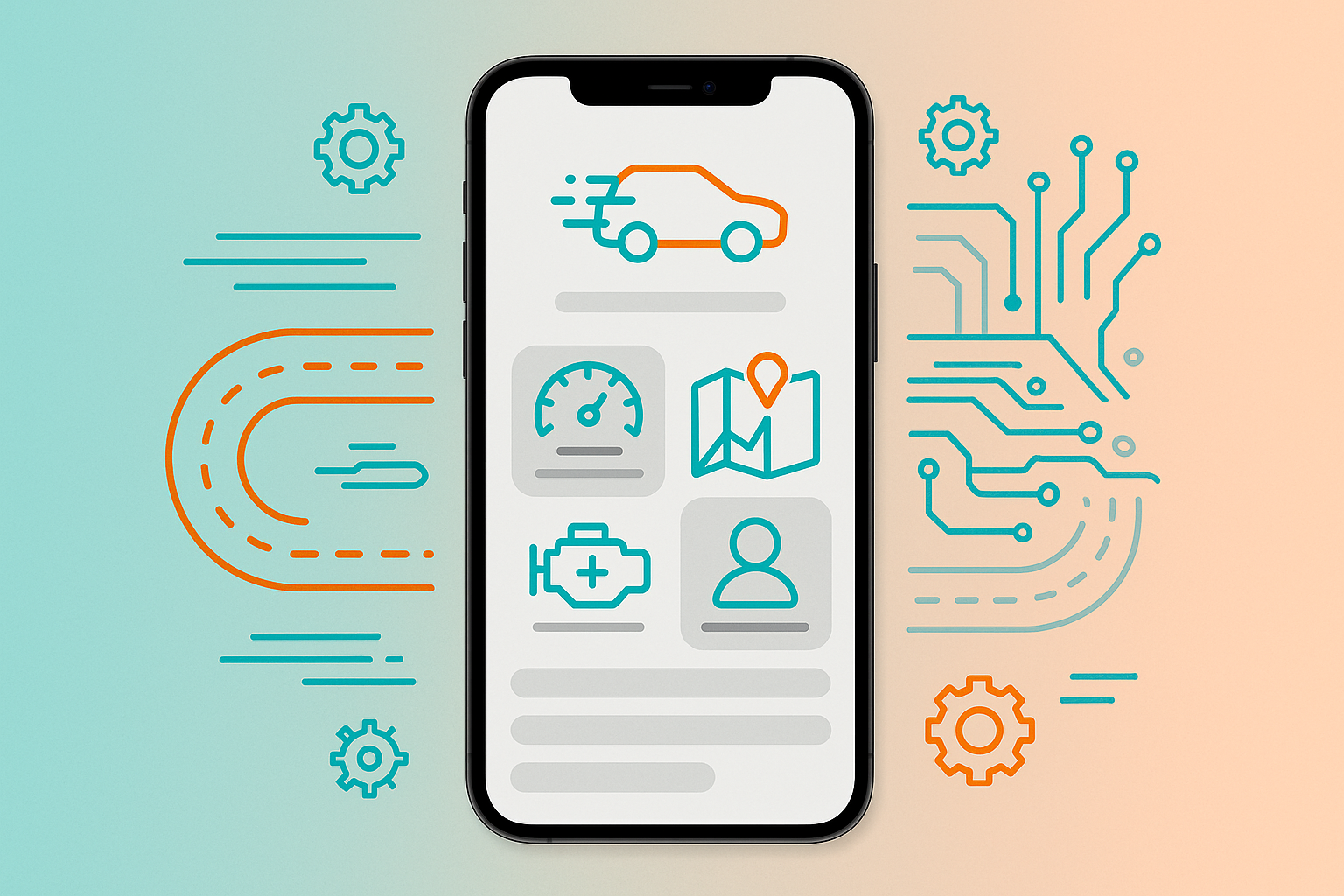The Symphony of Code: A Guide to Audio App Development
In an era defined by digital content, audio applications have become an integral part of daily life. From sprawling music streaming services and high-fidelity audiophile players to simple podcast apps, the demand for rich, seamless audio experiences has never been higher. Yet, behind the elegant interfaces and seemingly effortless playback lies a world of profound technical complexity. Developing an audio app that is not just functional but truly excellent—one that delivers crisp, synchronized, and uninterrupted sound—is a formidable challenge.
This endeavor is fraught with obstacles, from managing real-time audio streams and ensuring cross-platform compatibility to implementing sophisticated recommendation engines and navigating a labyrinth of licensing agreements. For many startups and even established businesses, attempting to build such an application in-house can quickly drain resources, stall progress, and lead to a subpar product that fails to resonate with users.
This article serves as your comprehensive guide to the world of audio app development. We will explore what defines an audio app, dissect the significant hurdles of building one, categorize the diverse types of applications on the market, and provide a realistic breakdown of development costs. Most importantly, we will introduce you to the leading development companies that can turn your vision into a reality. Among them, we at MetaCTO, a top US-based, AI-powered app development firm, stand ready to be your expert partner. With over two decades of experience, we have the deep technical knowledge to orchestrate every element of your project, from concept to launch and beyond.
What is an Audio App?
At its core, an audio app is any software application designed for the playback and, often, management of audio files. This broad definition encompasses a vast spectrum of products. Hundreds of applications are available that simply play music stored on a user’s computer, while others are full-featured media playback and management platforms that serve as the central hub for a user’s entire digital music life.
The simplest audio applications are audio-only players built for a singular purpose: high-quality playback with minimal distraction. At the other end of the spectrum are giants like iTunes, a platform used by hundreds of millions of people, which combines local file playback, a digital storefront, and cloud integration.
The features and philosophy behind these apps can vary dramatically. Some prioritize an immersive user experience with rich metadata and discovery features, while others focus exclusively on technical prowess, offering advanced digital signal processing (DSP) options for the discerning audiophile. The common thread is their fundamental purpose: to deliver sound to the listener. However, as we will see, the path to delivering that sound flawlessly is anything but simple.
Why In-House Audio App Development is So Challenging
Building a world-class audio app requires more than just a talented development team; it demands specialized expertise in a variety of niche, interconnected domains. The challenges are not merely lines of code but fundamental problems in computer science, user experience, and business strategy. Attempting to tackle these hurdles without a seasoned guide can lead to critical failures that compromise the entire project.
Technical Hurdles
The technical foundation of an audio app is where most in-house projects falter. These are not standard software development problems; they are unique to the demands of real-time media.
- Real-time Playback and Synchronization: The most fundamental requirement of an audio app is to play sound. Yet, achieving this in real-time with perfect synchronization and without any crackling, stuttering, or dropouts is a monumental task. It involves managing low-level audio buffers, minimizing latency, and contending with the unpredictable performance of different operating systems and hardware. A single misstep can ruin the listening experience and destroy user trust.
- Cross-Platform Compatibility: An app that only works on one platform has a limited reach. However, making a music app work smoothly on iOS, Android, the web, and beyond presents a cascade of interrelated challenges. Each platform has its own audio APIs, hardware quirks, and power management rules. Writing code that performs optimally across this fragmented ecosystem requires deep, platform-specific knowledge to ensure a consistent and high-quality experience for all users.
- Performance and Resource Efficiency: Audio apps, especially those on mobile devices, must be lean and efficient. They need to deliver the highest possible audio quality while consuming minimal CPU, memory, and battery. This balancing act is incredibly difficult. For instance, high-resolution audio processing is computationally expensive and can quickly drain a phone’s battery. Optimizing these processes while retaining quality is a core challenge.
- Secure Offline Listening and Storage Management: Offering offline playback is a key feature for user retention, but it introduces significant complexity. Managing downloads in a way that is secure, protects copyrighted material, and minimizes the demands on a device’s limited disk space is a major hurdle. This involves efficient file formats, encryption, and intelligent cache management.
- Magical Recommendation Engines: In the age of personalization, a “magical” recommendation engine is no longer a luxury; it’s an expectation. Developing an engine that truly understands a user’s taste and introduces them to music they will love is a massive undertaking. It requires sophisticated machine learning models, powerful data infrastructure, and access to vast datasets for training. This is the domain of data science and AI, a field where specialized expertise is paramount.
- Data Security and Privacy: Audio apps handle personal data, from listening habits to user credentials. Preventing data leakage and protecting against unauthorized access is a non-negotiable requirement. This involves robust encryption, secure authentication protocols, and adherence to privacy regulations like GDPR and CCPA, which adds another layer of legal and technical complexity.
Business and Strategic Hurdles
Beyond the code, significant business challenges can derail a project.
- Music Licensing: This is often the single greatest barrier to entry. The cost of licensing music from record labels and publishers can be astronomical and the negotiation process is notoriously complex. Licensing fees can escalate quickly depending on the size of the music library you wish to offer, making it a critical and potentially prohibitive cost.
- Infrastructure and Scaling: A successful app will grow its user base, but this growth requires a scalable infrastructure to support it. The costs associated with servers, content delivery networks (CDNs), and databases needed to stream audio to thousands or millions of users need to be carefully planned and managed.
- Marketing and Launch: Building a great app is only half the battle. The cost to market and launch an audio app, making it stand out in a crowded marketplace, can often match or even exceed the entire development budget.
Partnering with an experienced firm like MetaCTO mitigates these risks. Our team has navigated these technical and strategic waters before. We bring the specialized knowledge in AI for recommendation engines, the cross-platform development experience, and the strategic foresight to build an app that is not only technically sound but also positioned for market success.
Different Types of Audio Apps
The audio application landscape is rich and varied, with apps designed to cater to every type of listener, from the casual user to the hardcore audiophile. It is a disservice to rank them by sound quality, as a single person cannot possibly test all the variables of each app against the vast array of available hardware. Instead, it is more useful to categorize them by their design philosophy and feature set.
Full-Featured Media Players and Managers
These applications aim to be the all-in-one solution for managing and playing a digital music library. They are characterized by extensive features, powerful customization, and robust organizational tools.
- JRiver Media Center: Often considered the audiophile standard, JRiver is used by many serious enthusiasts. Its combination of a rich feature set, a highly-regarded tablet remote control app (JRemote), and relative ease of use is unmatched. It supports nearly all relevant file formats, including PCM and DSD, provides full library management and metadata editing, and includes powerful DSP options like resampling, convolution, and parametric equalization. While its desktop UI can feel dated and there is a learning curve to master its features, its power and continuous development make it a top contender.
- Roon: In stark contrast to JRiver, Roon is all about the user experience. From the founders of Sooloos, Roon offers a user interface and immersive experience that are far ahead of all other applications. Its defining feature is its ability to weave a user’s local files together with lossless music from TIDAL, presenting it all within a rich, magazine-like interface filled with deep metadata. While it is more expensive and offers fewer geeky tweaking options than JRiver, Roon is for the user who wants a sleek, immersive, and discovery-oriented listening experience.
iTunes-Integrated Enhancement Apps
Apple’s iTunes is used by hundreds of millions of people, but for audiophiles, it has critical flaws, such as a lack of native FLAC support and its inability to switch sample rates automatically to match the source file. This category of apps works in conjunction with iTunes to fix these problems.
- Pure Music: This app runs alongside iTunes, which remains the library manager, while Pure Music takes over as the sound engine. It enables auto sample rate switching, supports FLAC and DSD playback through iTunes, and offers a host of DSP features, including 64-bit upsampling and support for Audio Unit plugins for room correction.
- Amarra: As the first app to enable auto sample rate switching for iTunes, Amarra’s main purpose is to integrate the professional-grade Sonic Studio sound engine. It comes in several versions with incrementally more features, such as real-time sample rate conversion and advanced mastering EQ.
- BitPerfect: For the user seeking the simplest possible solution, BitPerfect is a small, inexpensive app that rests in the OS X menu bar. Its primary function is to enable auto sample rate switching in iTunes, with a few extra options for dither and integer mode.
Highly Technical and Tweakable Players
These applications are for the ultimate power user who delights in having endless options and is willing to tackle a steep learning curve to achieve sonic perfection.
- HQ Player: The main feature of HQ Player is its extensive and highly regarded Digital Signal Processing. Users are often drawn to its powerful algorithms for upsampling audio to high-resolution DSD formats. It has a primitive user interface and no library management, making it intimidating for beginners. However, savvy users who invest the time to learn it are rewarded with some of the best DSP options available.
- XXHighEnd: Taking complexity to another level, XXHighEnd has what might be the most confusing user interface on the market. It is also one of the most powerful pieces of software available, with a claim to fame of having “lossless” DSP-like features, including a proprietary digital volume control. This app is not for the faint of heart.
Minimalist Players
These apps eschew feature bloat in favor of simplicity and a focus on sound quality.
- Audirvana Plus: What began as a simplistic player has grown to include library management, but its soul has always been about sound. It offers advanced playback options like direct mode and integer mode, DSD support, and high-quality sample rate conversion using the iZotope engine.
- Vox: Aimed at a younger, “hipster” demographic, Vox is a simple, good-looking player with a killer feature: Loop, a cloud service that lets users sync their entire music library, including high-resolution files, for streaming to their Mac or iOS devices.
The Cost of Developing an Audio App
Estimating the cost of building a music streaming app is not a simple calculation. The final budget is a function of complexity, features, and the development team’s location and experience. The cost can range from $45,000 for a simple app to over $250,000 for a highly complex, feature-rich platform.
Several key factors directly impact this budget:
- Application Complexity:
- Simple App ($45,000 - $60,000): A basic application with core features like user registration, audio playback, and simple playlist creation.
- Moderately Complex App ($70,000 - $100,000): An app with additional features like social sharing, offline mode, and basic recommendation algorithms.
- Highly Complex App ($100,000 - $250,000): A sophisticated platform with advanced AI-driven recommendations, live streaming, rich user profiles, lyrics synchronization, and extensive third-party integrations. For example, building an app like Spotify could cost between $45,000 and $150,000.
- Feature Development Time: The number and complexity of features are primary cost drivers. The development hours for common features are estimated as follows:
| Feature | Estimated Development Hours |
|---|---|
| User Registration & Profile | 40 - 60 hours |
| Advanced Search Functionality | 110 - 140 hours |
| Recommendation Engine | 100 - 150 hours |
| Playlist Creation & Management | 70 - 100 hours |
| Lyrics Display | 80 - 90 hours |
| Push Notifications | 80 - 90 hours |
| Social Sharing Options | 65 - 70 hours |
| Offline Mode & Downloads | 60 - 70 hours |
- Location of the Development Team: The hourly rate of developers varies significantly by region. Outsourcing to a dedicated team can offer professional expertise at a reduced cost, but it’s crucial to balance cost with quality, communication, and experience.
| Region | Estimated Hourly Rate |
|---|---|
| United States | $95 - $100 |
| Western Europe | $80 - $90 |
| Australia | $70 - $90 |
| Eastern Europe | $50 - $55 |
| Asia | $25 - $40 |
- Other Critical Costs:
- UI/UX Design: Creating a seamless and intuitive user experience requires significant design and testing, which affects the overall cost.
- Platform Choice: While there is a negligible cost difference between native iOS and Android development, building for both platforms will increase the budget.
- Maintenance and Updates: The initial development cost is not the end of the story. Ongoing maintenance, bug fixes, and feature updates are a recurring expense.
- Licensing, Security, and Infrastructure: As mentioned earlier, these are significant, ongoing operational costs that must be factored into the total cost of ownership.
Top Audio App Development Companies
Choosing the right development partner is the most critical decision you will make. You need a team with proven experience, deep technical expertise, and a strategic mindset. Here are some of the top companies in the space, led by our team at MetaCTO.
1. MetaCTO
As a premier US-based mobile app development agency, we at MetaCTO specialize in turning ambitious ideas into market-leading applications. With over 20 years of experience and more than 120 successful projects launched, we have a proven track record of helping startups and SMBs build, grow, and monetize their mobile apps. Our 5-star rating on Clutch is a testament to our commitment to our clients’ success.
What truly sets us apart in the audio app space is our expertise in AI Development. We don’t just build apps; we build intelligent systems. For an audio app, this means we can develop sophisticated, AI-powered recommendation engines, voice-driven commands, and personalized user experiences that are essential for competing in today’s market.
Our process is designed to de-risk your investment and accelerate your time to market. We handle every step, from initial strategy and validation to building a market-ready app, growing your user base, and implementing effective monetization strategies. We excel at Custom Mobile App Development and can deliver a polished Minimum Viable Product (MVP) in as little as 90 days, allowing you to test your concept, gather feedback, and secure funding efficiently. By partnering with us, you gain more than a development team; you gain a deep technical partner dedicated to building a technology roadmap that will increase your profit and valuation.
Other Leading Development Firms
| Company | Founded | Location(s) | Employees | Hourly Rate | Core Services |
|---|---|---|---|---|---|
| SolGuruz | 2019 | India, USA | 50-100 | < $25 / hr | Custom software development, Music app development, AI development, Mobile app development |
| NimbleApp Genie | 2017 | London, UK | 50-250 | N/A | Mobile App development, Custom app development, Web development, music app development |
| Miquido | 2011 | Poland | 50-250 | N/A | Mobile app development, AI development, UI/UX, Web development, QA |
| ClearSummit | 2014 | Los Angeles, USA | 10-50 | N/A | Custom web and mobile app development, UI/UX Design, custom software development |
| Tekrevol | 2018 | USA | 250-1001 | N/A | Mobile App development, AR/VR development, Custom Software development, IT Staff Augmentation |
| JPLoft | 2013 | USA | 50-250 | N/A | Custom software development, music application development, web development, mobile app development |
| SDLC Corp | 2016 | Dubai, UAE | 250-1001 | N/A | Music app development, custom software development, AI development, Blockchain |
| Fire Art Studio | 2013 | Poland | 50-250 | N/A | UI/UX Design, Web Design, Product Design, Music app development |
| Matellio | 2014 | USA | 250-1001 | N/A | AI development services, Web development, Music application development, IoT development, Mobile App development |
Conclusion: Build Your App the Right Way
The journey of creating a successful audio app is a marathon, not a sprint. It demands a deep understanding of complex technical challenges, a strategic approach to business and licensing, and a significant financial investment. From ensuring flawless real-time playback and building a “magical” AI-powered recommendation engine to navigating the myriad of app types and development partners, the path is laden with potential pitfalls.
Attempting this journey alone is a high-risk proposition. The most effective way to transform your vision into a polished, scalable, and successful application is to partner with a team of experts who have navigated this terrain before.
At MetaCTO, we live and breathe mobile app development. We bring two decades of experience, a specialized focus on AI, and a comprehensive, end-to-end process that guides you from a simple idea to a thriving business. We are more than just developers; we are strategic partners invested in your long-term success. If you’re ready to build an audio app that resonates with users and stands out in a competitive market, let’s start the conversation.
Talk with an expert at MetaCTO today, and let’s build your app the right way, from day one.






